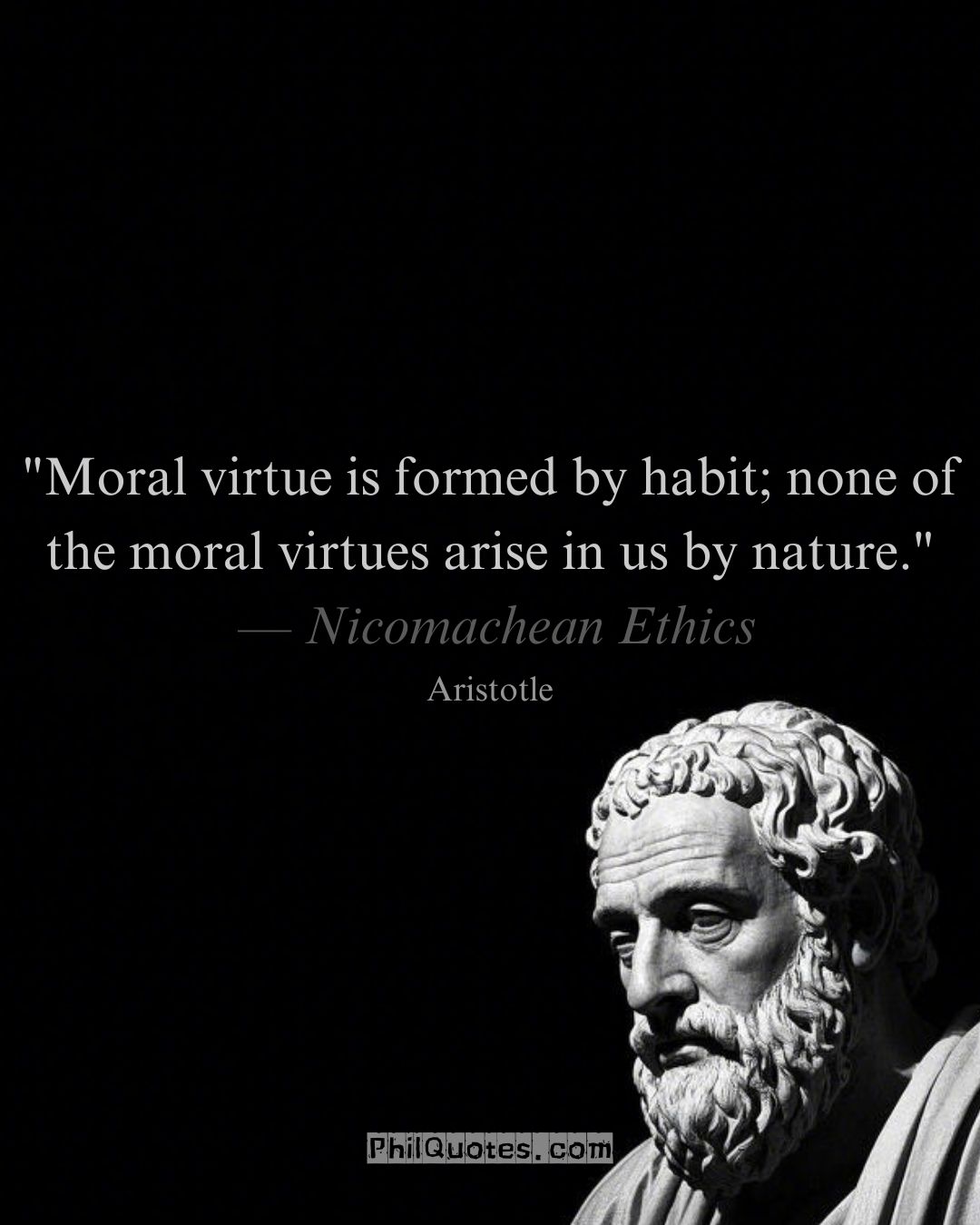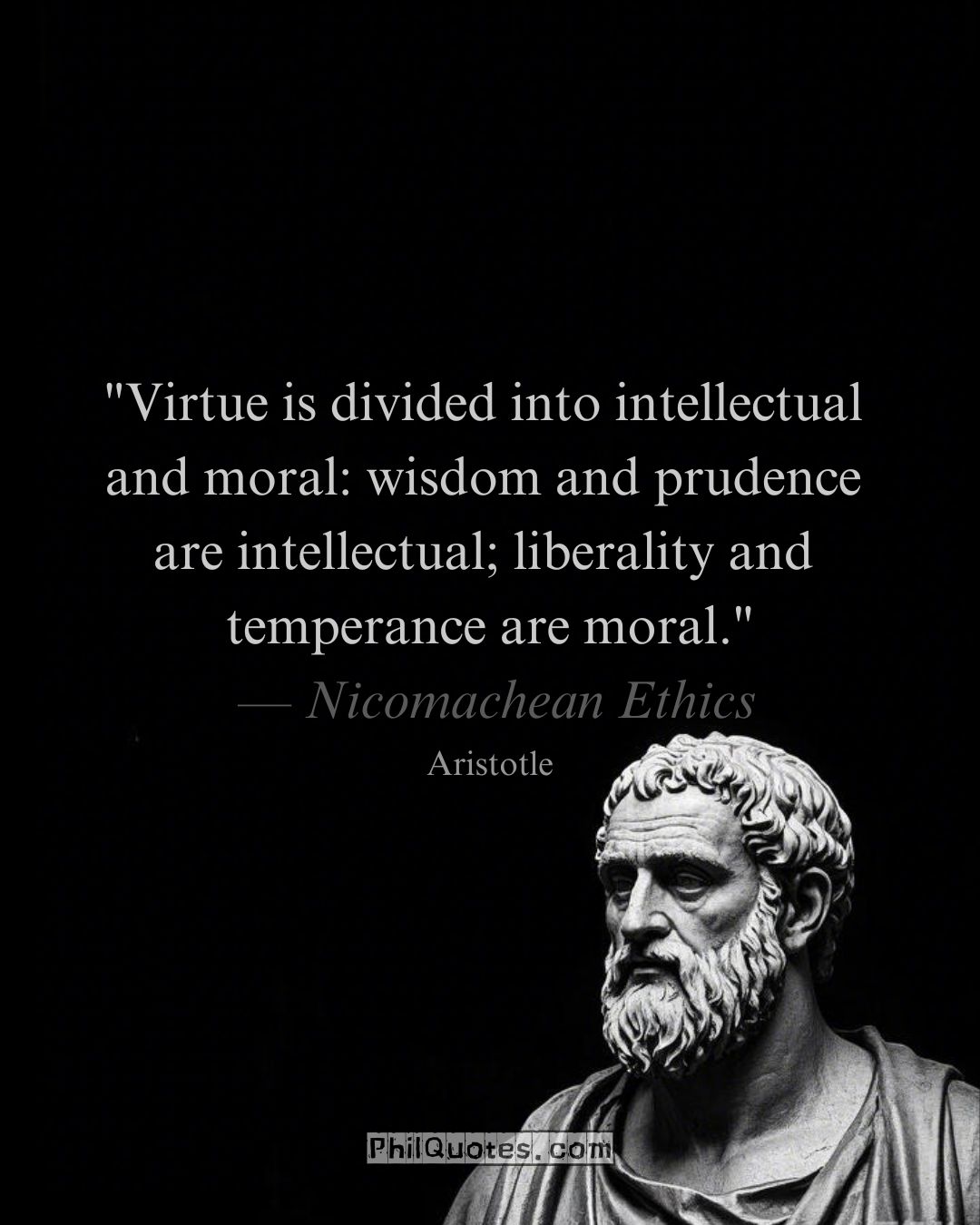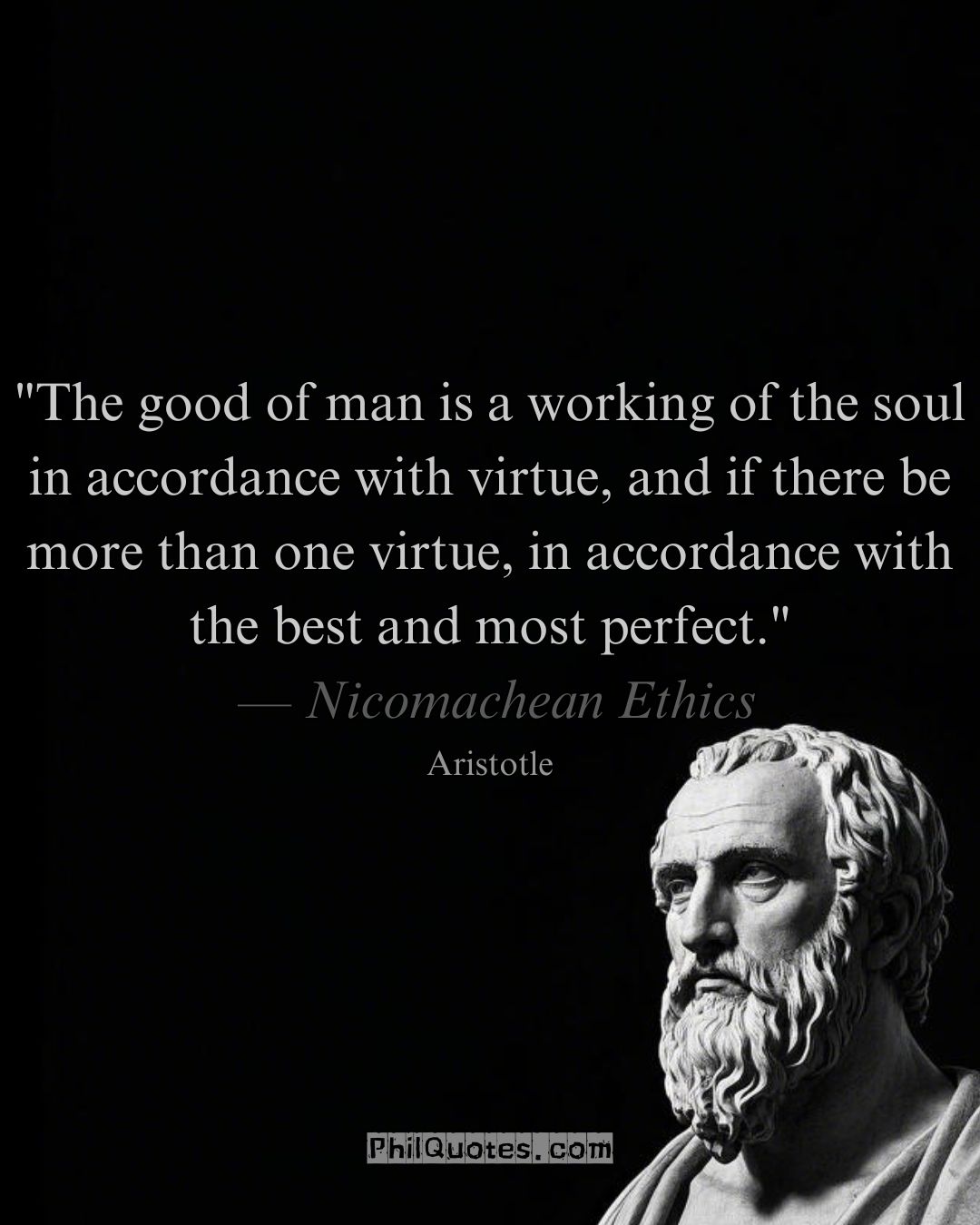Aristotle Nicomachean Ethics Quote: “Moral virtue is formed by habit; none of the moral virtues arise in us by nature.”
“Moral virtue is formed by habit; none of the moral virtues arise in us by nature.”— Aristotle, Nicomachean Ethics, Book I, Chapter 13 Explanation:Aristotle’s dual virtue framework maps human excellence: Real-World Connection:① AI Ethics Committee →You analyze algorithm biases (intellectual prudence) → advocate for transparency protocols (moral liberality) → balance innovation with equity (virtue integration).② … Read more


